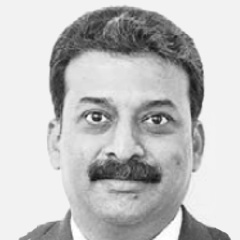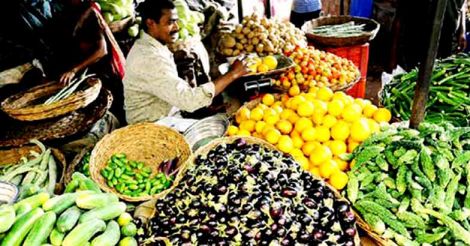Maggi fans are yet to digest a ban on their favourite noodles. Why was it banned? What are the issues it raises?
More than the disappearance of a popular brand of food, this is an occasion that demands a rethink of our food culture.
“From farm to plate, make food safe” is the theme of this year’s World Health Day. The Indian Medical Association has brought out a guideline for Malayalis on the occasion. These are some easy and practical methods to ensure that we eat safe.
Maggi was banned because it was found to contain lead and monosodium glutamate at dangerously high levels. There are more such substances which make our food harmful. Various chemicals, pollutants and germs make food harmful. From production to procurement to marketing and to cooking and serving, many factors can affect the quality of our food.
Unsafe food is linked to the deaths of an estimated 2 million people annually – including many children, the World Health Organization estimates. Food containing harmful bacteria, viruses, parasites or chemical substances is responsible for more than 200 diseases, ranging from diarrhoea to cancers.
We do not recognise the dangers we eat. This is ignorance. We have to know the means to make our food safe.
The World Health Organization proposes five rules: 1) Keep clean. Wash your hands before and after a meal. Wash cooking tools and vessels and the places where the food is kept; 2) Separate raw and cooked food; 3) Cook food thoroughly. Most of the germs are killed when food is cooked at 70 degree Celsius; 4) Keep food at safe temperatures. It is better to eat warm soon after cooking. Avoid keeping food in atmospheric temperature for more than two hours. It has to be refrigerated under 5 degrees Celsius. Even that is avoidable; 5) Use safe water and raw materials.
The last key is perhaps the most difficult. How do we ensure that food is safe when so many chemicals are used on it? There are a few things we can do. Avoid packet food such as noodles, chips and biscuits. They have high fat, salt and sugar in excess as well as preservatives, colouring agents and artificial flavours. Many of them are not safe.
The fruits and vegetables you grow on your own are the safest. But this is not practical and we have to buy them from outside. Choose vegetables and fruits grown locally at the given season. Vegetables and fruits brought from outside (cauliflower, cabbage, apple etc) will have excessive chemicals.
We need a comprehensive involvement to make food safe. The government has to ensure more checks and bring in more rules. The scientific community has a duty to lead society in the right path. Health, agriculture, animal husbandry and food safety departments have to act in tandem.
The individual and society as a whole must strive to produce or pick safe food and to cook and use it scientifically. Collective thinking can ensure a healthy food culture. We cannot wait any longer.
(The writer is the president of Indian Medical Association’s Kerala unit)





































































































































































































































































































































































































































































































































































































































Disclaimer
The comments posted here/below/in the given space are not on behalf of Manorama. The person posting the comment will be in sole ownership of its responsibility. According to the central government's IT rules, obscene or offensive statement made against a person, religion, community or nation is a punishable offense, and legal action would be taken against people who indulge in such activities.